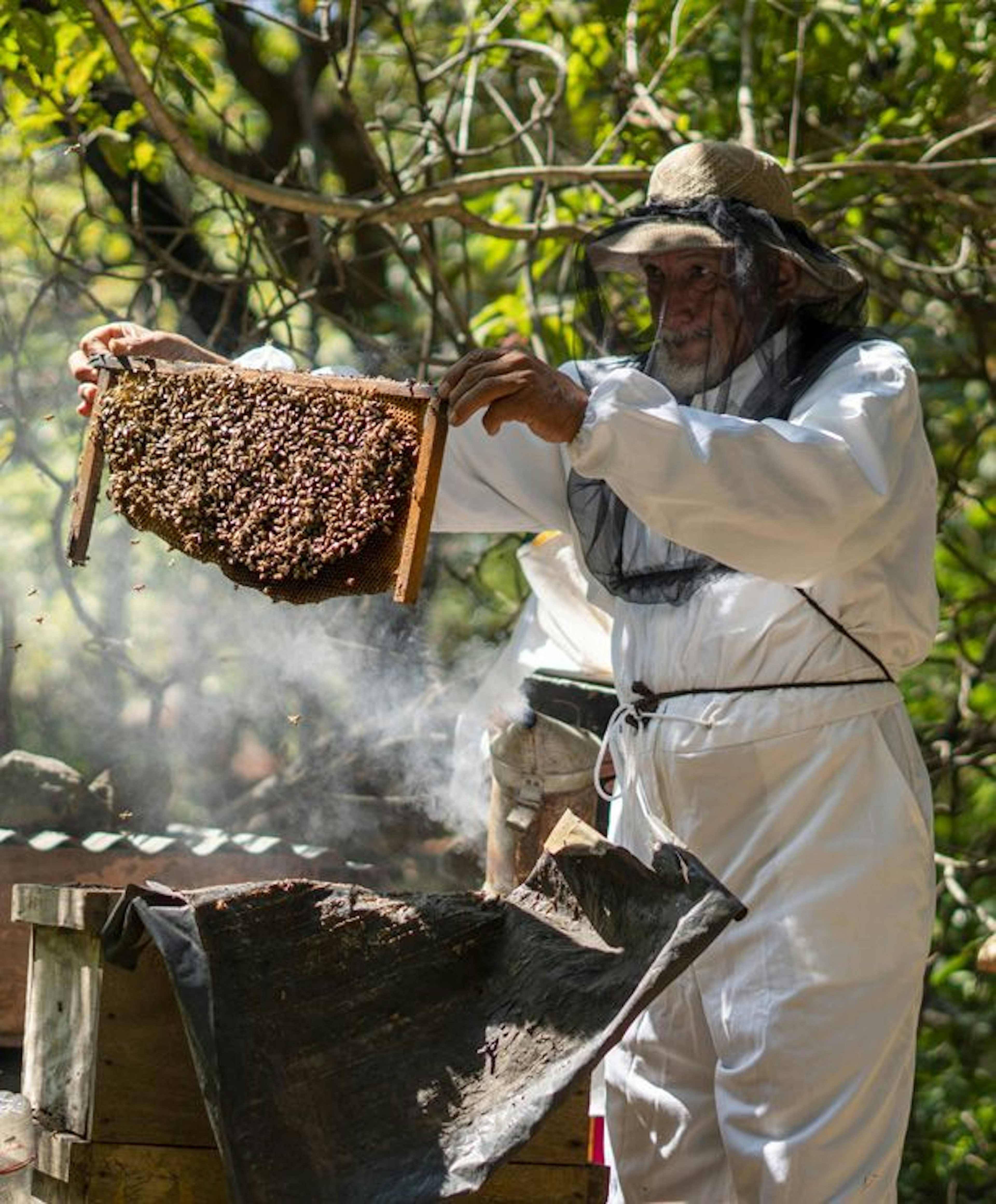Honey

Overview
As a primary pollinator, bees make a critical contribution to global biodiversity and food security. In the last decades, bee populations have declined dramatically. Responsible beekeeping can be part of the solution.
Beekeeping is seldom a person’s sole source of income. Because it requires relatively small investment of time and resources, beekeeping is widely encouraged by development agencies as a way to diversify income, improve nutrition, and increase pollination, which in turn increases local crop yields.
Rising worldwide demand for honey has fuelled fraud. Roughly a third of all “honey” has been adulterated. The distribution of value within honey supply chains is often very inequitable, with fraudsters, international traders and local buyers collecting a lion’s share.
The salient issues in the honey sector (in the order of saliency):
- Living income
Many beekeepers face a shortage of local buyers and lack pricing information that could help them negotiate higher prices. Absconding of bees and natural disasters have left many vulnerable beekeepers financially devastated.
- Water & Biodiversity
Concerns around the treatment of bees, especially in industrial-scale beekeeping, include excessive honey extraction, the killing of hives after the season, and the selection of non-native bee species.
- Health
Beekeepers face health risks related to bee, tick and other insect exposure.
- Gender equity
Women beekeepers have a poorer access to hives, credit, training and information. Beekeeper cooperatives are seldom lead by women.
- More information on risks in honey

Root causes
Climate change: Shifting rainfall patterns and climate conditions make flowering periods and pest outbreaks erratic, and creates challenges for small-scale honey producers. Climate change and the overapplication of pesticides are also some of the likely drivers of global pollinator loss.
Fraudulent activities: Beekeepers lose hundreds of millions of dollars every year, due to fraudulent activities in the honey supply chain. A significant portion of honey is altered by adding or removing elements like sugar, or smuggled into market areas to avoid tariff payments.
Background data on honey (*Global Volume / **Fairtrade Volume)
Largest producer countries*
- China (21.5%)
- Turkey (5.5%)
- Iran (3.7%)
- India (3.5%)
- Argentina (3.3%)
- Others (62.6%)
Source: FAOSTAT 2022.
Dominant production model*
of beekeepers conduct beekeeping as a supplementary form of income.
Source: in Schouten 2020.
Fairtrade certified producer organisations**
Data from 2022.
Fairtrade certifiable production**
metric tonnes in 2020.
Number of Fairtrade certified small-scale producers**
Data from 2020.

Stay updated
Partnering for change
Companies can be part of the solution by identifying and addressing the most serious risks and root causes in collaboration with farmers, workers and other affected people. Sign up to receive updates as we add new information to this Map, or to hear how Fairtrade can support your corporate sustainability due diligence.
Map View